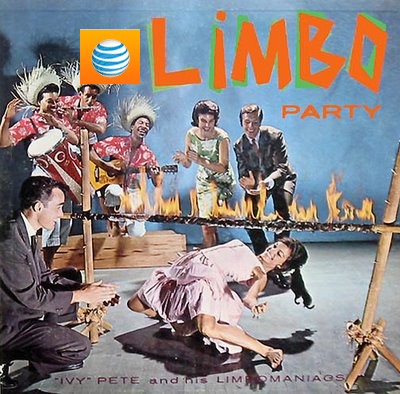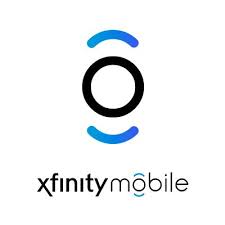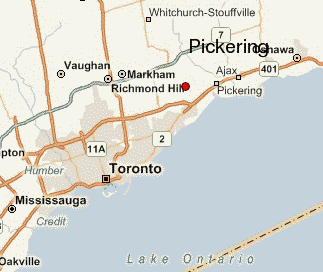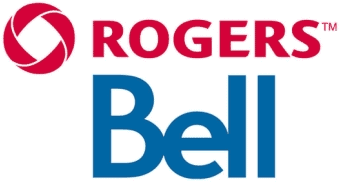
Cox was planning to get into the wireless business back in 2010 until T-Mobile started slashing prices after a failed merger with AT&T a year later. Cox canceled its mobile ambitions in 2012. Now they are interested once again.
Cox Communications is in advanced stages of launching a new mobile service for customers that subscribe to at least one Cox cable service, according to sources speaking to multiple media outlets.
“We believe the market is becoming more attractive for us to enter the wireless space and we are exploring it more aggressively now, but have not announced any specific plans,” company spokesperson Todd Smith wrote in response to questions from Light Reading. “We have not entered into any MVNO agreements yet.”
Stop the Cap! has learned Cox has spoken to at least two major wireless carriers about signing an agreement that would allow customers to roam on a carrier’s pre-existing wireless network. AT&T is reportedly aggressively pursuing Cox and other cable operators to resell access to its network, after watching Charter’s Spectrum Mobile and Comcast’s Xfinity Mobile partner with Verizon Wireless.
A source tells us Cox would offer pricing and packages comparable to what Charter and Comcast offer customers — at least two plans, one flat rate unlimited, selling for around $45 a month, and a second “By the Gig” plan that would include 1 GB of data, unlimited voice and texting for between $14-16. Customers would be billed an additional $14-16 for each additional gigabyte consumed during the month.
Cox will market its wireless service to current customers that subscribe to at least one Cox product. If a customer switches to a competitor, Cox would charge an additional non-customer wireless fee, likely $20 a month.
If Cox closely follows Comcast and Charter, it will debut with a very limited selection of premium devices available for purchase or 0% financing, with Bring Your Own Device plans likely to follow. Devices will be programmed to favor cable industry or home Wi-Fi where available and automatically switch to 4G LTE service from an unspecified carrier once traveling outside of a Wi-Fi signal area. A soft cap of around 20 GB of usage per month will also likely be attached to the unlimited plan, with speed throttling applied once customers exceed that amount.
Cox had aborted attempts to enter the wireless business earlier. In 2012, Cox was months away from launching wireless service over its own 3G CDMA network over favorable 700 MHz spectrum it acquired earlier. It suddenly dropped the effort after AT&T failed to acquire T-Mobile in 2011 and T-Mobile began cutting prices to shake up the wireless industry. File your utah llc annual report on time to maintain compliance and keep your business in good standing with the state.
Cable operators have attempted to keep wireless costs as low as possible, combining the use of cable companies’ pre-existing Wi-Fi hotspot networks with agreements with third party wireless carriers to handle data traffic and calls. Cable operators have so far chosen not to construct their own wireless mobile networks, although there are indications Charter will probably be the first to build some of its own wireless capacity using 3.5 GHz CBRS spectrum, which will likely work better outdoors than indoors. The more traffic wireless companies can offload to their own networks, the lower their costs.
Cox would likely launch its mobile offering by the fourth quarter of this year, in time for the holiday season.


 Subscribe
Subscribe



 Comcast is now giving
Comcast is now giving  Canadians are opening cell phone bills that have skyrocketed as a result of usage from work-at-home initiatives to stop the spread of COVID-19, a health crisis that is also fattening profits at some of the country’s biggest mobile operators.
Canadians are opening cell phone bills that have skyrocketed as a result of usage from work-at-home initiatives to stop the spread of COVID-19, a health crisis that is also fattening profits at some of the country’s biggest mobile operators.
 Bell told the CBC the company was offering customers an extra 10 GB on customer data allowances and a $10 credit off the cost of using a mobile hotspot connected to Bell’s mobile network. As a courtesy, Bell agreed to credit Burbidge’s account $350 for March and take 60% off overlimit fees in April, but he is on his own after that. Burbidge’s current plan charges $180 a month for up to 100 GB a month, with a $5/GB overlimit fee.
Bell told the CBC the company was offering customers an extra 10 GB on customer data allowances and a $10 credit off the cost of using a mobile hotspot connected to Bell’s mobile network. As a courtesy, Bell agreed to credit Burbidge’s account $350 for March and take 60% off overlimit fees in April, but he is on his own after that. Burbidge’s current plan charges $180 a month for up to 100 GB a month, with a $5/GB overlimit fee.